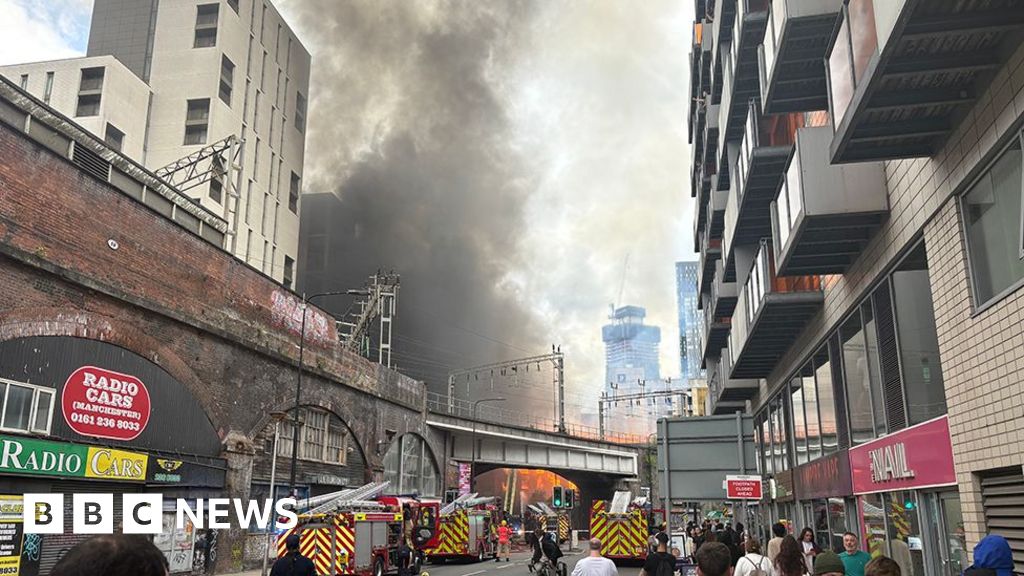Greece Battles Massive Blaze on Chios Forcing Tourists and Locals to Evacuate Sixteen Areas During Peak Summer Travel - Travel And Tour World
Monday, June 23, 2025

A massive wildfire on Greece’s Chios Island has triggered emergency evacuations for both tourists and residents as flames fueled by scorching heat and powerful winds continued to spread for a second day. Authorities have issued push alerts urging people to flee sixteen areas around Chios Town, while nearly 200 firefighters, helicopters, and water-dropping aircraft battle to contain the fast-moving blaze. The fire, which broke out in multiple locations on Sunday, has raised concerns of possible arson and highlights the increasing severity of wildfires in Greece, a crisis officials attribute to climate change and prolonged dry summer conditions.
Greek emergency services issued new evacuation orders on Monday morning for communities near the town of Chios as a fierce wildfire continued to rage for a second consecutive day on the eastern Aegean island. The fire, which ignited on Sunday in multiple locations around the island, has rapidly intensified due to high temperatures and powerful winds, prompting an urgent response from authorities.
The Hellenic Fire Service mobilized an extensive operation to contain the wildfire, with 190 firefighters actively battling the blaze. The response effort also includes 35 fire engines, five helicopters, and two aircraft specializing in water drops. Despite this significant deployment, firefighting efforts remain severely challenged by strong winds that have persisted since Sunday, spreading the flames quickly and unpredictably across dry vegetation and hilly terrain.
Emergency alerts were repeatedly sent to mobile devices in the region, instructing residents to evacuate multiple neighborhoods, settlements, and villages near Chios Town. So far, evacuations have been ordered in 16 areas, underscoring the scale and speed of the fire’s progression.
Authorities revealed that the wildfire began in at least three distinct locations, raising serious concerns about the possibility of human involvement. In response, an arson investigation team from the specialized fire department unit has been dispatched to Chios to determine the cause of the outbreak. While natural causes remain a possibility, the presence of multiple ignition points has heightened suspicions of deliberate fire-setting.
Wildfires are not uncommon in Greece during the peak summer months. The combination of soaring temperatures, low humidity, and dry vegetation creates ideal conditions for fires to spark and spread. However, in recent years, the frequency and intensity of wildfires across the country have escalated dramatically. Greek officials and environmental experts attribute this worrying trend to the increasing effects of climate change, which has led to longer and hotter summers with stronger wind patterns and prolonged droughts.
The current situation on Chios is part of a broader pattern of fire emergencies that Greece has faced each summer. Large-scale blazes in recent years have tested the country’s emergency services, strained resources, and triggered widespread evacuations, often in tourist-heavy regions.
The memory of Greece’s deadliest wildfire disaster remains painfully vivid. In 2018, a catastrophic blaze engulfed the seaside resort town of Mati, east of Athens. With little time to escape, many residents and tourists became trapped in their homes and vehicles as flames tore through the area. Over 100 people lost their lives in that disaster, including some who fled into the sea in a desperate attempt to escape the inferno, only to drown.
That tragedy prompted a nationwide reckoning about wildfire preparedness, emergency response protocols, and urban planning in fire-prone areas. In its aftermath, Greece introduced reforms aimed at improving coordination among firefighting units and ensuring faster public warning systems — such as the mobile push alerts now being used on Chios.
As the wildfire on Chios continues to burn, authorities remain focused on safeguarding lives. The evacuation orders aim to prevent injuries and fatalities, especially in areas where the fire could shift direction due to sudden gusts. Temporary shelters have been set up for displaced residents, while hospitals and emergency medical services remain on standby.
Local officials are urging residents and tourists alike to follow evacuation instructions without delay and to stay away from affected areas. Roads have been closed near the fire zones, and drone surveillance is being used to monitor fire behavior and guide operations from the air.
Although firefighting units are working around the clock, the containment timeline remains uncertain. Changing wind conditions and topography are complicating efforts, and new flare-ups remain a possibility as embers travel over long distances.
The Greek government continues to emphasize the importance of community awareness and rapid response. Fire safety campaigns, investment in fire-resistant infrastructure, and international cooperation with EU civil protection mechanisms are among the strategies being implemented to tackle the worsening threat posed by wildfires.
As the situation on Chios unfolds, Greece once again finds itself on the frontlines of climate-driven disasters. The days ahead will be crucial in determining how quickly the fire can be contained and whether the damage can be minimized before weather conditions potentially deteriorate further.
Greece has ordered urgent evacuations on Chios Island as a rapidly spreading wildfire, driven by extreme heat and strong winds, threatens tourist areas and residential zones. Authorities blame the escalating crisis on climate change and suspect arson due to multiple ignition points.
The Chios wildfire serves as a stark reminder of Greece’s vulnerability during its intense summer season. While the nation’s firefighting forces have mobilized rapidly and effectively, the broader challenge of adapting to and mitigating climate-related risks looms large. As authorities continue to battle the flames, the safety of residents and visitors remains the top priority, and the country watches closely — hoping to avoid another tragic chapter in its long struggle against wildfires.











